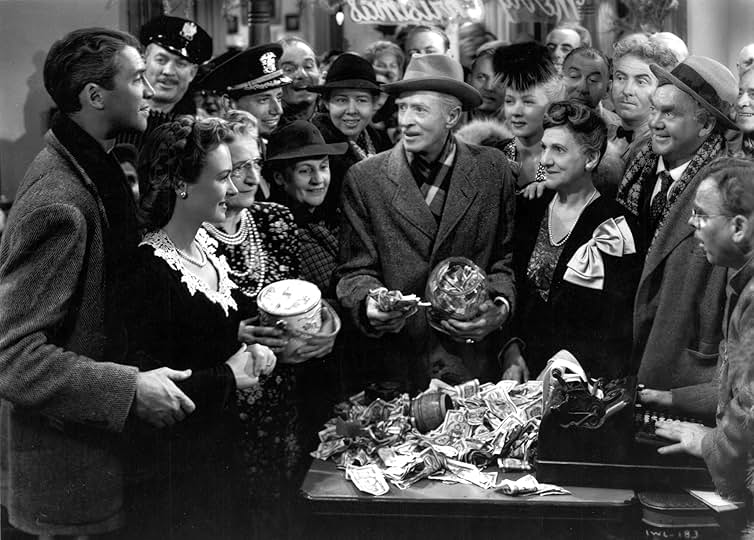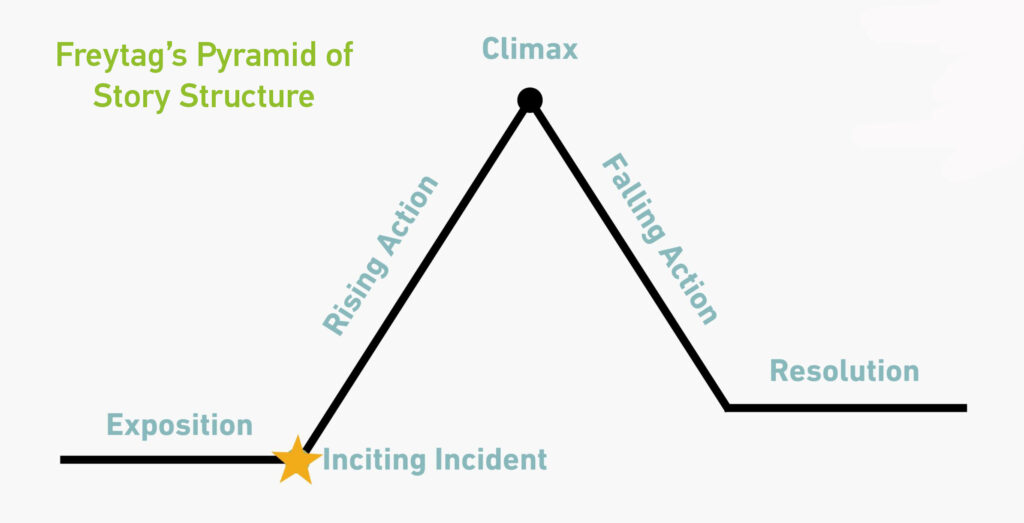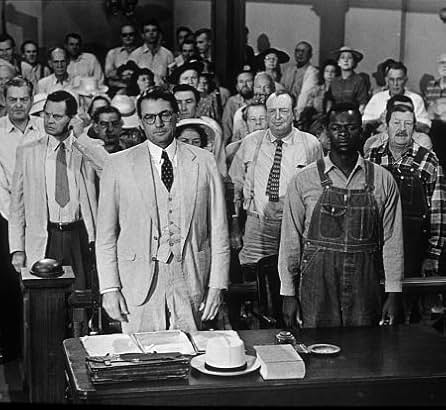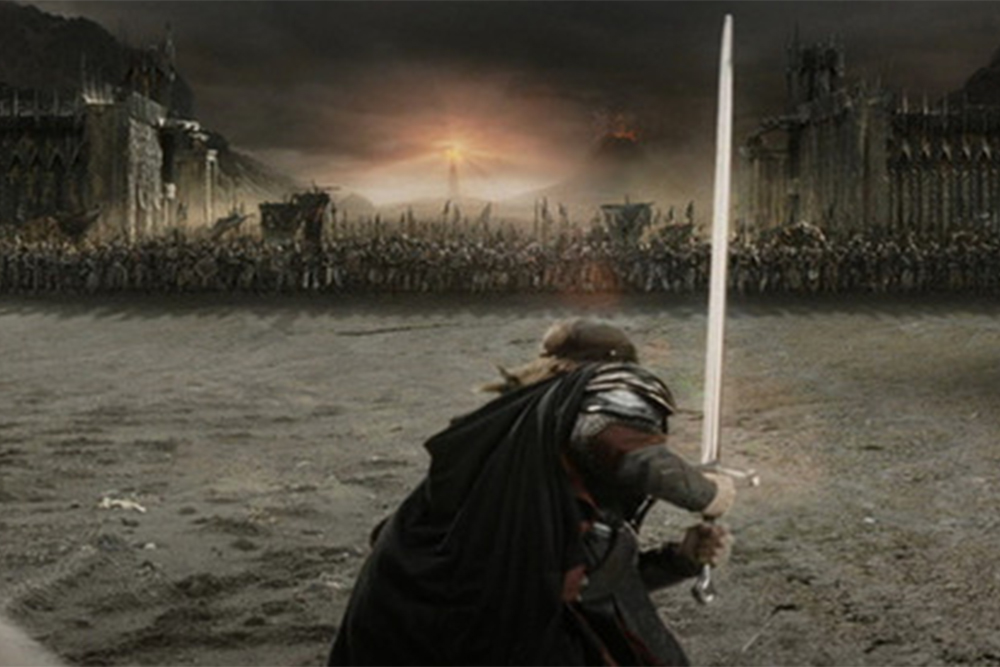The climax. This is the moment your reader has been waiting for.
They’ve spent hours immersed in your story, falling in love with your characters and becoming increasingly invested in your plot. Tension has been building as they anticipate that something big. Something life-changing is about to happen for your protagonist. They will finally be rewarded with a resolution to the dramatic question that set your protagonist out on their journey. In this article, I will go over what a story climax is, look at some examples, and I will offer you a Story Weapon on how to build up to that pivotal moment.
The climax is when the protagonist faces a difficult choice that resolves their inner dilemma and reveals the story’s deeper meaning. It’s the point where built-up tension releases, the theme crystallizes, and the protagonist gains what they need—often at a cost—making the ending both inevitable and emotionally cathartic.
What is a story climax?
The climax of a story is the moment where the protagonist makes a difficult choice, thus resolving their inner dilemma.
The climax is sometimes referred to as the “battle scene” for the protagonist. It is important to remember that while it is called a battle, it is an inner battle for the protagonist which may manifest itself externally. This inner battle is between what the protagonist wants and what they need.
- In a mystery story, it could be the moment the detective reveals who the killer is.
- In a romantic comedy, it could be the moment when the couple realize that their one true love has been right in front of them all along.
- In a horror story, it might be the moment when the protagonist is finally rescued from the supernatural forces besetting them.
- In a thriller, it could be the moment that the protagonist finally triumphs over the seemingly undefeatable villain.
The purpose of the climax
The climax resolves the thematic question the reader has been breathlessly waiting for in this moment of unmatched suspense.
In other words, the climax is not necessarily the moment where the protagonist gets what they want, but it is where they get what they need. They now understand something about themselves and/or the world that they didn’t understand previously. In getting what they need, it becomes possible to get what they want — but only if what they want still belongs in their life.
For example, in the film, It’s A Wonderful Life, George Bailey wants to leave Bedford Falls so he can have a wonderful life. By the end of the film he realizes that his life has value because he has saved the town. He no longer has a desire to leave, because he has reframed his relationship to his desire.

The climax is usually played out by a confrontation between the protagonist and antagonist where the conflict gets “resolved.” The protagonist may succeed or fail in their pursuit. (But this is not always the case. Remember, the battle scene is an internal battle for the protagonist between what they want and what they need.)
The boiling point
The main goal of the climax is to release the tension that was being built up throughout the story, by resolving the protagonist’s dilemma.
The climax is the moment the bigger picture is revealed to both the protagonist and the reader. Without a climax, a story runs the risk of being merely episodic, a series of connected events. Without a climax, the whole never amounts to anything greater than the sum of its parts.
This moment of revelation is what brings purpose to the events that preceded the climax. It shows that the conflicts and challenges the protagonist has been facing weren’t all for nothing. It’s the moment that pushes the protagonist to take a stand in their changed worldview.
However the events of the story play out, they are forced to face the beliefs they once held and decide whether or not to face the world as they see it now. The character’s true development is challenged and revealed through the dramatic build of the climax.
5 stages of plot
The word “climax” originates from the Greek word klimax meaning ladder. It later evolved to describe the high point or turning point in a narrative.
It is used in relation to literature in Gustav Freytag’s Pyramid in which he lays out five main sections of story: exposition, rising action, climax, falling action, and resolution.

As you can see, he places the climax as the central peak of the story. While he is right in that the climax is the highest point of the main conflict, it typically occurs about 90% of the way into a story.
If the climax occurs too soon, it is likely that the tension was not properly built. The resolution will be too long for the readers to remain engaged. If it occurs too late in the story, however, there is little space for wrapping up loose ends, resulting in an unresolved feeling for the reader. Sometimes this abrupt ending is intentional, especially in genres like thrillers and horror. In most cases, the author wants their reader to have a satisfied feeling at the end of their story.
After spending hours invested in the protagonist’s journey, a reader expects a payoff.
The climax doesn’t have to mean the protagonist was successful in attaining their goal. It just has to be a crucial moment where the tension pops and the characters move towards resolving the dramatic question presented in Act One.
Examples of compelling climatic moments

- Atticus Finch prevails, but the jury declares Tom Robinson is guilty in Harper Lee’s To Kill a Mockingbird.
- Winston and Julia are captured by the Thought Police for torture and brainwashing in George Orwell’s 1984.
- Katniss and Peeta threaten to eat the poisonous berries in Suzanne Collin’s The Hunger Games.
These are powerful, surprising, and unforgettable climactic moments. They stay with you as a direct result of the protagonist’s “difficult choice.”
The climax is the moment in the story where everything comes together — for better or worse. Everything in your protagonist’s journey has been leading them inexorably toward this moment. Whether your reader feels surprised, furious, elated, or undone, it’s the piece of the story you just can’t put down. In fact, the key to writing an unforgettable climax is that it is both a total surprise while also being utterly inevitable.
Your story weapon: Writing a powerful climax
Have you ever read a story with rising anticipation, only to arrive at the end and think, “That’s it?”
A writer’s worst fear is to write an anticlimactic ending to their story. The pressure of writing a satisfying climax can be stifling, but there are a few key things that can help you.
A good climax relies on building the stakes.
Throughout the story, the protagonist should be going through events that challenge their physical, mental, and/or emotional state in a way that makes the climax feel like life or death.
There is also a relationship between the protagonist’s “surrender” at the end of Act Two, and the “climax” toward the end of Act Three. Your protagonist surrenders because they have no choice. As a result of this surrender, they let go of pursuing their want and begin to pursue their need. In doing so, ironically, they are led to a new choice (the climax) where they prove to the gods that they have reframed their relationship to their goal.
The climax should challenge the protagonist and emphasize the overall theme of the story.
The protagonist has been challenged throughout the story to face the life they lived before. They often aren’t able to identify their true desire until this moment of unavoidable confrontation occurs.
Whatever the event is, it should force your protagonist to face both their dilemma. This is what brings your reader’s emotional investment and the overall impact of the theme to a satisfying conclusion.
While you want to surprise your reader with the ending, the climax still needs to be congruent with the events that preceded it. The climax doesn’t have to be fireworks. Sometimes a subtle twist of fate is all your story needs to leave a lasting impact. A Deux Ex machina (also known as an “Act of God”) moment will take the air out of the balloon because the ending is not germane to the rules of the world that the author has established.
The key to writing a compelling climax
Remember that the ending is often bittersweet — not sweet. The protagonist must pay a price for their transformation. It costs them something. We must lose our innocence in order to gain wisdom (The Great Gatsby). Growing up and becoming responsible means the death of our youth (Knocked Up). We must accept our ordinariness in order to become special (Lady Bird).
Ask yourself, “What is the difficult choice my protagonist must make between what they want and what they need?” By exploring this question, you will discover that character suggests plot. It is less about the choice your protagonist makes, but about why they make this choice that provides your climactic moment with meaning.
When you connect to the bittersweetness of your story’s climax, you will tap into the emotional catharsis that makes your story universally relatable.
For more guidance on creating a compelling climax, join my next Story Day, a one-day workshop. I will take you on a deep dive into creating a compelling narrative that leads your story to a powerful climatic conclusion.






